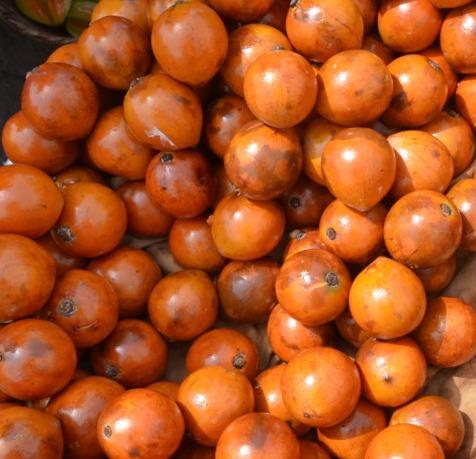
Titi, a 35-year-old pregnant woman was in her fifth month but had hardly experienced any respite in her body since she took in, as she constantly battled diverse health challenges. The newly pregnant lady wondered what the cause of her daily sickness might be, as she went from headaches, dizziness, and fatigue to vomiting, heart palpitation, infections, restless legs, depression, cold hands and feet, and so on.
Eventually, the worst happened on a fateful Saturday as she suddenly fainted and was rushed to the hospital, where she was taken to the intensive care unit, as her life and that of her unborn baby were on the line.
Sequel to the numerous tests conducted on Titi, she was diagnosed to be suffering from severe anaemia, due to long term Iron-deficiency, which had become life-threatening in her state. She had, in fact, deliberately abstained from nutrient-rich diets, having believed some erroneous cultural teachings on dietary habits in pregnancy, hook, line and sinker.
Titi’s case isn’t peculiar, however. Studies have shown that many women are embracing such misleading and unscientific beliefs on dietary habits in pregnancy and infancy. Unsurprisingly, this has increased mortality and morbidity among women and children, with 58 per cent of women of reproductive age in Nigeria suffering from anaemia.
It was for this reason that the Head of Nutrition, Federal Ministry of Health, Dr Binyerem Ukaire, warned that iron-deficiency is a public health challenge that is impacting the Nigerian socioeconomic situation with negative indices, such as higher morbidity and mortality in children, adolescents and women of reproductive age; lower work productivity, impaired reproduction, impaired growth, among others.
Citing from the National Demographic Health Survey (NDHS) 2018 data, which pegs the iron-deficiency burden in Nigeria among women of reproductive age at 58 per cent, while that of children of 5-59 months is at 68 per cent, with 81 per cent of 12 – 17 months children anaemic, Ukaire calls for a change in dietary habits among Nigerian women and children to avert an epidemic.
The nutritionist who advised pregnant women to shun superstitious beliefs that forbid consumption of nutrients-rich foods, pointed out some of the widespread cultural factors that prevent women from taking Iron and Folic Acid (IFA) nutrients or supplements.
“It could arise from the influence of male spouses and older women; misconception about IFA posing danger to mother and baby ‘as IFA makes baby big’; women are seen as being “strong” when they deliver at home, thus don’t need IFA; utilisation of herbal concoction, faith-related factors, and so on.”
Widespread problem
Our correspondent’s interviews with some pregnant women across the country confirmed the reality of these harmful beliefs and practices, as some of them confided in her when asked about their level of IFA intake before and during pregnancy.
One of them who spoke on the ground of anonymity said as someone who was raised in the village, she had grown up with the notion that women of reproductive age did not need supplements to aid their blood supply. She added that her mother specifically told her that she had no need of IFA to be strong in pregnancy because there are various concoctions to make a pregnant woman stronger than taking any iron-rich foods.
She however acknowledged that she usually experienced certain symptoms (consistent with iron-deficiency) when pregnant, despite all she had been told by her late mother. “Since I usually patronise local birth attendants or sometimes deliver at home, I don’t know what is called iron or anaemia, but what I know is that I easily become tired or feel dizzy when I’m pregnant. I used to think it was the baby that was draining me. But since I have known now, I think there will be a change from now on,” she narrated.
Another lady in her twenties, Chika, also admitted experiencing paleness and loss of hair whenever she has a heavy menstrual flow, but never considered it to be due to shortage of iron or anaemia. She revealed to us that she assumed that was how other ladies felt while menstruating too; so she usually managed her sickly condition when on.
She said: “Naturally I have apathy for anything drug – whether supplement or multivitamins – as they make me over sleep or eat too much; so I don’t take them for any reason. I believe eating according to my natural appetite without any supplement can always supply the required nutrients for my body. Although I have my reservations for some fruits and vegetables, I believe that the food I take should be adequate for my blood supply”.
Although most of the interviewed women eventually admitted the need to take more of iron-rich foods, their initial state of mind is a confirmation that there are several women in the society who are still ignorant of how iron-deficiency affects them or their children. Indeed, many have died during delivery or due to post-partum haemorrhage.
Specific health risks
A Professor of Nutrition/Consultant Nutritionist, Matilda Steiner-Asiedu, emphasised the dangers of iron-deficiency in pregnancy and infancy, saying it is a major cause of infant and maternal mortality, especially when it is discovered at a later stage when doctors can do little or nothing about it. She asserted that anaemic pregnant women are at risk of death whether through vaginal delivery or C-section, adding that same applies to their unborn babies.
The expert, from the Department of Nutrition and Food Science, School of Biological Sciences, College of Basic and Applied Sciences, University of Ghana, defined anaemia as “a condition in which the blood has a lower-than-normal red blood cells.” She identified three types of anaemia, but stressed that iron-deficiency is the most common globally.
Steiner-Asiedu further emphasised the need to scale up consumption of iron-rich foods to avert a surge in infant and maternal mortality rates in the country.
“For pregnant women short of iron in their system, they are at risk of death before, during and after delivery. This is why pregnant women with iron-deficiency in pregnancy are usually very weak, with paleness and they are also prone to deliver anaemic babies.
“At times, at the point of delivery, when a baby is born anaemic, doctors intervene to administer iron syrup after assessment. But if an anaemic pregnant woman delivers in a sub-standard hospital, there is the possibility of both mother and baby dying of shortage of blood.
“Also in the process of delivery, if an anaemic mother loses a lot of blood through bleeding, that might also lead to death. Since it is established that iron-deficient pregnant women experience weakness, pushing out the baby might become a challenge at the point of delivery, as she may lack the energy to do so, because iron is needed to help haemoglobin to carry oxygen. In such instances, doctors might carry out a C-section, which could still put the woman at risk, and death can also occur.
“If the child is born normally but develops anaemia during a cold, it will affect the mental capacity. The brain might lack enough oxygen, so the baby will not be able to think probably. And that is why we say that between 0 and 5 months, their IQ can be very low and they can’t perform properly, as they also feel very weak,” she stated.
Reversing the negative trend
To improve the health of women, especially the pregnant ones, Prof. Steiner-Asiedu, countered cultural notions that forbid pregnant women from eating iron-rich meals like snails, saying such foods are natural provisions to supply our nutrients needs, which should not be disputed by anyone as they have loads of benefits for the human system.
For women who avoid beans due to the gaseous element in it, she urged them to remove the husk and prepare it in different ways to supply their needed nutrients, such as making moi moi or beans stew; or they could mix beans with vegetables and greens, which will also enrich the iron content.
Expectant mothers are encouraged not to be addicted to certain meals but to try out a variety of meals with more of greens and vegetables. Even when allergies are developed against certain foods such as dry fish, they can always find a way around it such as pounding such foods into soup or stew which will help boost their iron content.
It was apparently the enormity of the challenge of iron deficiency that propelled the recent campaign by Nestlé Nigeria Plc themed: “Live Strong with Iron”, which centred on increasing the consumption of local iron-rich and iron-fortified foods to improve healthy living.
Speaking on the objective of the campaign, Victoria Uwadoka, head of corporate communications and public affairs, Nestlé Nigeria, during the closing session of a three-week virtual training workshop organised for journalists covering health, nutrition, environment and business, noted that it aims to educate the public on the need to eat nutritious food.
She said the campaign’s goal was to reach at least 50 percent of Nigerians with increased knowledge and awareness to reduce the incidence of iron deficiency.
“At Nestlé, we are committed to enabling people to lead healthier and happier lives by continuously improving our products, providing affordable food for all.
“Beyond providing tasty and nutritious products to consumers, we work alongside stakeholders to build strong communities and supply chains while improving livelihoods in communities directly linked to our business operations”, she asserted.
The organisation also encourages pregnant women to eat more of locally available foods, arguing that they have more nutrients for them than packaged foods.
Some of the recommended iron-rich local foods are: dark green leaves, egusi, beans, nuts, meat, fish, chicken, offal and whole grains. Such foods are also known to provide other essential nutrients like folate, calcium, fibre and protein.










